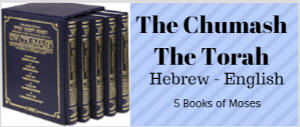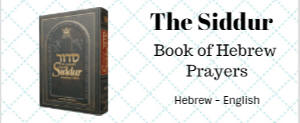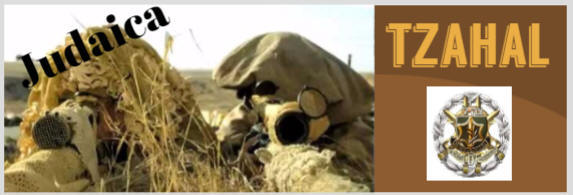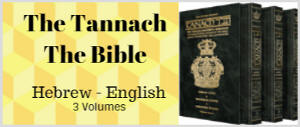.
|
38:1
|
Fourth Reading
Around this time, Judah
left his brothers. He became
friends with a man of Adullam by
the name of Chirah.
Vayehi ba'et hahi
vayered Yehudah me'et
echav vayet ad-ish
Adulami ushmo Chirah.
|
|
|
אוַֽיְהִי֙ בָּעֵ֣ת הַהִ֔וא וַיֵּ֥רֶד יְהוּדָ֖ה מֵאֵ֣ת אֶחָ֑יו וַיֵּ֛ט
עַד־אִ֥ישׁ עֲדֻלָּמִ֖י
וּשְׁמ֥וֹ חִירָֽה:
|
|
|
|
|
38:2
|
There Judah met the daughter of
a merchant named Shua.
He married her and came
to her.
Vayar-sham Yehudah
bat-ish Kna'ani ushmo
Shu'a vayikacheha vayavo
eleyha.
|
|
|
בוַיַּרְא־שָׁ֧ם יְהוּדָ֛ה בַּת־אִ֥ישׁ כְּנַֽעֲנִ֖י וּשְׁמ֣וֹ שׁ֑וּעַ
וַיִּקָּחֶ֖הָ וַיָּבֹ֥א
אֵלֶֽיהָ:
|
|
|
|
|
38:3
|
She became pregnant and
had a son. He named the
child Er.
Vatahar vateled ben
vayikra et-shmo Er.
|
|
|
גוַתַּ֖הַר וַתֵּ֣לֶד בֵּ֑ן וַיִּקְרָ֥א אֶת־שְׁמ֖וֹ עֵֽר:
|
|
|
|
|
38:4
|
She became pregnant
again, and had another
son. She named him Onan.
Vatahar od vateled ben
vatikra et-shmo Onan.
|
|
|
דוַתַּ֥הַר ע֖וֹד וַתֵּ֣לֶד בֵּ֑ן וַתִּקְרָ֥א אֶת־שְׁמ֖וֹ אוֹנָֽן:
|
|
|
|
|
38:5
|
She gave birth once
again to a son, and she
named him Shelah.
[Judah] was in Keziv when
she gave birth to [this
child].
Vatosef od vateled ben
vatikra et-shmo Shelah
vehayah viChsiv
belidetah oto.
|
|
|
הוַתֹּ֤סֶף עוֹד֙ וַתֵּ֣לֶד בֵּ֔ן וַתִּקְרָ֥א אֶת־שְׁמ֖וֹ שֵׁלָ֑ה וְהָיָ֥ה
בִכְזִ֖יב בְּלִדְתָּ֥הּ
אֹתֽוֹ:
|
|
|
|
|
38:6
|
Judah took a wife for Er
his first-born, and her
name was Tamar.
Vayikach Yehudah ishah
le-Er bechoro ushmah
Tamar.
|
|
|
ווַיִּקַּ֧ח יְהוּדָ֛ה אִשָּׁ֖ה לְעֵ֣ר בְּכוֹר֑וֹ וּשְׁמָ֖הּ תָּמָֽר:
|
|
|
|
|
38:7
|
Judah's first-born Er
was evil in God's eyes,
and God made him die.
Vayehi Er bechor Yehudah
ra be'eyney Adonay
vayemitehu Adonay.
|
|
|
זוַיְהִ֗י עֵ֚ר בְּכ֣וֹר יְהוּדָ֔ה רַ֖ע בְּעֵינֵ֣י יְהֹוָ֑ה וַיְמִתֵ֖הוּ
יְהֹוָֽה:
|
|
|
|
|
|
|
חוַיֹּ֤אמֶר יְהוּדָה֙ לְאוֹנָ֔ן בֹּ֛א אֶל־אֵ֥שֶׁת אָחִ֖יךָ וְיַבֵּ֣ם
אֹתָ֑הּ וְהָקֵ֥ם זֶ֖רַע
לְאָחִֽיךָ:
|
|
|
|
|
38:9
|
Onan, however, realized that
the children would not
carry his name.
Therefore, whenever he
came to his brother's
wife, helet
[the seed] go to waste
on the ground,
so as not to have
children in his
brother's name.
Vayeda Onan ki lo lo
yihyeh hazara vehayah
im-ba el-eshet achiv
veshichet artsah levilti
netan-zera le-achiv.
|
|
|
טוַיֵּ֣דַע אוֹנָ֔ן כִּ֛י לֹּ֥א ל֖וֹ יִֽהְיֶ֣ה הַזָּ֑רַע וְהָיָ֞ה
אִם־בָּ֨א אֶל־אֵ֤שֶׁת
אָחִיו֙ וְשִׁחֵ֣ת
אַ֔רְצָה לְבִלְתִּ֥י
נְתָן־זֶ֖רַע לְאָחִֽיו:
|
|
|
|
|
38:10
|
What he did was evil in
God's eyes, and He also
made him die.
Vayera be'eyney Adonay
asher asah vayamet
gam-oto.
|
|
|
יוַיֵּ֛רַע בְּעֵינֵ֥י יְהֹוָ֖ה אֲשֶׁ֣ר עָשָׂ֑ה וַיָּ֖מֶת גַּם־אֹתֽוֹ:
|
|
|
|
|
38:11
|
Judah said to his
daughter-in-law Tamar,
'Live as a widow in your
father's house until my
son Shelah is grown.' He
was putting
her off because
he was concerned that
[Shelah], too, would die
like his brothers. Tamar
left and lived in her
father's house.
Vayomer Yehudah le-Tamar
kalato shvi almanah
veyt-avich ad-yigdal
Shelah vni ki amar
pen-yamut gam-hu
ke'echav vatelech Tamar
vateshev beyt aviha.
|
|
|
יאוַיֹּ֣אמֶר יְהוּדָה֩ לְתָמָ֨ר כַּלָּת֜וֹ שְׁבִ֧י אַלְמָנָ֣ה
בֵית־אָבִ֗יךְ
עַד־יִגְדַּל֙ שֵׁלָ֣ה
בְנִ֔י כִּ֣י אָמַ֔ר
פֶּן־יָמ֥וּת גַּם־ה֖וּא
כְּאֶחָ֑יו וַתֵּ֣לֶךְ
תָּמָ֔ר וַתֵּ֖שֶׁב
בֵּ֥ית אָבִֽיהָ:
|
|
|
|
|
38:12
|
A long time passed, and
Judah's wife, the
daughter of Shua, died.
Judah sought
consolation, and he went
to supervise his sheep
shearers in Timna,
together with his
friend, Chirah the
Adullamite.
Vayirbu hayamim vatamot
bat-Shu'a eshet-Yehudah
vayinachem Yehudah
vaya'al al-gozezey tsono
hu veChirah re'ehu
ha'Adulami Timnatah.
|
|
|
יבוַיִּרְבּוּ֙ הַיָּמִ֔ים וַתָּ֖מָת בַּת־שׁ֣וּעַ אֵֽשֶׁת־יְהוּדָ֑ה
וַיִּנָּ֣חֶם יְהוּדָ֗ה
וַיַּ֜עַל עַל־גֹּֽזְזֵ֤י
צֹאנוֹ֙ ה֗וּא וְחִירָ֛ה
רֵעֵ֥הוּ הָֽעֲדֻלָּמִ֖י
תִּמְנָֽתָה:
|
|
|
|
|
38:13
|
Tamar was told that her
father-in-law was going
to Timna to shear his
sheep.
Vayugad le-Tamar lemor
hineh chamich oleh
Timnatah lagoz tsono.
|
|
|
יגוַיֻּגַּ֥ד לְתָמָ֖ר לֵאמֹ֑ר הִנֵּ֥ה חָמִ֛יךְ עֹלֶ֥ה תִמְנָ֖תָה לָגֹ֥ז
צֹאנֽוֹ:
|
|
|
|
|
38:14
|
She took off her widow's
garb, and covered
herself with a veil.
Thus disguised, she sat
at the entrance of Twin
Wells (Eynayim)
on the road to Timna.
She had seen that Shelah
had grown, and she had
not been given to him as
a wife.
Vatasar bigdey almenutah
me'aleyha vatechas
batsa'if vatit'alaf
vateshev befetach
Eynayim asher al-derech
Timnatah ki ra'atah
ki-gadal Shelah vehi
lo-nitnah lo le'ishah.
|
|
|
ידוַתָּ֩סַר֩ בִּגְדֵ֨י אַלְמְנוּתָ֜הּ מֵֽעָלֶ֗יהָ וַתְּכַ֤ס בַּצָּעִיף֙
וַתִּתְעַלָּ֔ף
וַתֵּ֨שֶׁב֙ בְּפֶ֣תַח
עֵינַ֔יִם אֲשֶׁ֖ר
עַל־דֶּ֣רֶךְ תִּמְנָ֑תָה
כִּ֤י רָֽאֲתָה֙
כִּֽי־גָדַ֣ל שֵׁלָ֔ה
וְהִ֕וא לֹֽא־נִתְּנָ֥ה
ל֖וֹ לְאִשָּֽׁה:
|
|
|
|
|
38:15
|
Judah saw her, and
because she had covered
her face,
he assumed that she was
a prostitute.
Vayir'eha Yehudah
vayachsheveha lezonah ki
chistah paneyha.
|
|
|
טווַיִּרְאֶ֣הָ יְהוּדָ֔ה וַיַּחְשְׁבֶ֖הָ לְזוֹנָ֑ה כִּ֥י כִסְּתָ֖ה
פָּנֶֽיהָ:
|
|
|
|
|
38:16
|
He turned aside to her
on the road, not
realizing that she was
his own daughter-in law.
'Hello there,' he said.
'Let me come to you.'
'What will you give me
if you come to me?'
Vayet eleyha el-haderech
vayomer havah-na avo
elayich ki lo yada ki
chalato hi vatomer
mah-titen-li ki tavo
elay.
|
|
|
טזוַיֵּ֨ט אֵלֶ֜יהָ אֶל־הַדֶּ֗רֶךְ וַיֹּ֨אמֶר֙ הָֽבָה־נָּא֙ אָב֣וֹא
אֵלַ֔יִךְ כִּ֚י לֹ֣א
יָדַ֔ע כִּ֥י כַלָּת֖וֹ
הִ֑וא וַתֹּ֨אמֶר֙
מַה־תִּתֶּן־לִ֔י כִּ֥י
תָב֖וֹא אֵלָֽי:
|
|
|
|
|
38:17
|
'I will send you a kid
from the flock.'
'But you must give me
something for security
until you send it.'
Vayomer anochi ashalach
gdi-izim min-hatson
vatomer im-titen eravon
ad sholchecha.
|
|
|
יזוַיֹּ֕אמֶר אָֽנֹכִ֛י אֲשַׁלַּ֥ח גְּדִֽי־עִזִּ֖ים מִן־הַצֹּ֑אן וַתֹּ֕אמֶר
אִם־תִּתֵּ֥ן עֵֽרָב֖וֹן
עַ֥ד שָׁלְחֶֽךָ:
|
|
|
|
|
38:18
|
'What do you want for
security?'
'Your seal, your wrap,
and the staff in your
hand,' she replied.
He gave them to her and
came to her, making her
pregnant.
Vayomer mah ha'eravon
asher eten-lach vatomer
chotamcha uftilecha
umatcha asher beyadecha
vayiten-lah vayavo
eleyha vatahar-lo.
|
|
|
יחוַיֹּ֗אמֶר מָ֣ה הָעֵֽרָבוֹן֘ אֲשֶׁ֣ר אֶתֶּן־לָךְ֒ וַתֹּ֗אמֶר חֹתָֽמְךָ֙
וּפְתִילֶ֔ךָ וּמַטְּךָ֖
אֲשֶׁ֣ר בְּיָדֶ֑ךָ
וַיִּֽתֶּן־לָ֛הּ
וַיָּבֹ֥א אֵלֶ֖יהָ
וַתַּ֥הַר לֽוֹ:
|
|
|
|
|
38:19
|
She got up and left,
taking off her veil and
putting her widow's garb
back on.
Vatakom vatelech vatasar
tse'ifah me'aleyha
vatilbash bigdey
almenutah.
|
|
|
יטוַתָּ֣קָם וַתֵּ֔לֶךְ וַתָּ֥סַר צְעִיפָ֖הּ מֵֽעָלֶ֑יהָ וַתִּלְבַּ֖שׁ
בִּגְדֵ֥י
אַלְמְנוּתָֽהּ:
|
|
|
|
|
38:20
|
Judah sent the young kid
with his friend the
Adullamite in order to
get the security back
from the woman, but [his
friend] could not find
her.
Vayishlach Yehudah
et-gedi ha'izim beyad
re'ehu ha'Adulami
lakachat ha'eravon miyad
ha'ishah velo metsa'ah.
|
|
|
כוַיִּשְׁלַ֨ח יְהוּדָ֜ה אֶת־גְּדִ֣י הָֽעִזִּ֗ים בְּיַד֙ רֵעֵ֣הוּ
הָֽעֲדֻלָּמִ֔י לָקַ֥חַת
הָעֵֽרָב֖וֹן מִיַּ֣ד
הָֽאִשָּׁ֑ה וְלֹ֖א
מְצָאָֽהּ:
|
|
|
|
|
38:21
|
[The friend] asked the
local people, 'where is
the religious
prostitute?
She was near Twin Wells
(Eynayim),
alongside the road.'
'There was no religious
prostitute here,' they
replied.
Vayish'al et-anshey
mekomah lemor ayeh
hakdeshah hi va'Eynayim
al-hadarech vayomeru
lo-hayetah vazeh
kedeshah.
|
|
|
כאוַיִּשְׁאַ֞ל אֶת־אַנְשֵׁ֤י מְקֹמָהּ֙ לֵאמֹ֔ר אַיֵּ֧ה הַקְּדֵשָׁ֛ה הִ֥וא
בָֽעֵינַ֖יִם
עַל־הַדָּ֑רֶךְ
וַיֹּ֣אמְר֔וּ
לֹֽא־הָֽיְתָ֥ה בָזֶ֖ה
קְדֵשָֽׁה:
|
|
|
|
|
38:22
|
He returned to Judah and
said, 'I could not find
[the woman]. The local
men said that there was
no sacred prostitute
there.'
Vayashav el-Yehudah
vayomer lo metsatiha
vegam anshey hamakom
amru lo-hayetah vazeh
kedeshah.
|
|
|
כבוַיָּ֨שָׁב֙ אֶל־יְהוּדָ֔ה וַיֹּ֖אמֶר לֹ֣א מְצָאתִ֑יהָ וְגַ֨ם אַנְשֵׁ֤י
הַמָּקוֹם֙ אָֽמְר֔וּ
לֹא־הָֽיְתָ֥ה בָזֶ֖ה
קְדֵשָֽׁה:
|
|
|
|
|
38:23
|
'Let her keep [the
security],' replied
Judah. 'We don't want to
become a laughingstock.
I tried to send her the
kid, but you couldn't
find her.'
Vayomer Yehudah
tikach-lah pen nihyeh
lavuz hineh shalachti
hagdi hazeh ve'atah lo
metsatah.
|
|
|
כגוַיֹּ֤אמֶר יְהוּדָה֙ תִּקַּח־לָ֔הּ פֶּ֖ן נִֽהְיֶ֣ה לָב֑וּז הִנֵּ֤ה
שָׁלַ֨חְתִּי֙ הַגְּדִ֣י
הַזֶּ֔ה וְאַתָּ֖ה לֹ֥א
מְצָאתָֽהּ:
|
|
|
|
|
38:24
|
Some three months
passed, and Judah was
told, 'Your
daughter-in-law has been
behaving loosely. She
has become pregnant from
her looseness.'
'Take her out and have
her burned,'
said Judah.
Vayehi kemishlosh
chodashim vayugad
li-Yehudah lemor zantah
Tamar kalatecha vegam
hineh harah liznunim
vayomer Yehudah
hotsi'uha vetisarech.
|
|
|
כדוַיְהִ֣י | כְּמִשְׁל֣שׁ חֳדָשִׁ֗ים וַיֻּגַּ֨ד לִֽיהוּדָ֤ה לֵאמֹר֨
זָֽנְתָה֙ תָּמָ֣ר
כַּלָּתֶ֔ךָ וְגַ֛ם
הִנֵּ֥ה הָרָ֖ה
לִזְנוּנִ֑ים וַיֹּ֣אמֶר
יְהוּדָ֔ה הֽוֹצִיא֖וּהָ
וְתִשָּׂרֵֽף:
|
|
|
|
|
|
|
כההִ֣וא מוּצֵ֗את וְהִ֨יא שָֽׁלְחָ֤ה אֶל־חָמִ֨יהָ֙ לֵאמֹ֔ר לְאִישׁ֙
אֲשֶׁר־אֵ֣לֶּה לּ֔וֹ
אָֽנֹכִ֖י הָרָ֑ה
וַתֹּ֨אמֶר֙ הַכֶּר־נָ֔א
לְמִ֞י הַֽחֹתֶ֧מֶת
וְהַפְּתִילִ֛ים
וְהַמַּטֶּ֖ה הָאֵֽלֶּה:
|
|
|
|
|
38:26
|
Judah immediately
recognized them. 'She is
more innocent than I
am!' he said. 'She did
it because I did not
give her to my son
Shelah.' He was not
intimate with her
anymore.
Vayaker Yehudah vayomer
tsadkah mimeni ki-al-ken
lo-netatiha le-Shelah
veni velo-yasaf od
ledatah.
|
|
|
כווַיַּכֵּ֣ר יְהוּדָ֗ה וַיֹּ֨אמֶר֙ צָֽדְקָ֣ה מִמֶּ֔נִּי כִּֽי־עַל־כֵּ֥ן
לֹֽא־נְתַתִּ֖יהָ
לְשֵׁלָ֣ה בְנִ֑י
וְלֹֽא־יָסַ֥ף ע֖וֹד
לְדַעְתָּֽהּ:
|
|
|
|
|
38:27
|
When the time came for
her to give birth, there
were twins in her womb.
Vayehi be'et lidetah
vehineh te'omim
bevitnah.
|
|
|
כזוַיְהִ֖י בְּעֵ֣ת לִדְתָּ֑הּ וְהִנֵּ֥ה תְאוֹמִ֖ים בְּבִטְנָֽהּ:
|
|
|
|
|
38:28
|
As she was in labor, one
of them put out an arm.
The midwife grasped it
and tied a crimson
thread on
it. 'This one came out
first,' she announced.
Vayehi velidetah
vayiten-yad vatikach
hameyaledet vatikshor
al-yado shani lemor zeh
yatsa rishonah.
|
|
|
כחוַיְהִ֥י בְלִדְתָּ֖הּ וַיִּתֶּן־יָ֑ד וַתִּקַּ֣ח הַֽמְיַלֶּ֗דֶת
וַתִּקְשֹׁ֨ר עַל־יָד֤וֹ
שָׁנִי֙ לֵאמֹ֔ר זֶ֖ה
יָצָ֥א רִֽאשֹׁנָֽה:
|
|
|
|
|
38:29
|
He pulled his hand back,
and then his brother
came out. 'You have
asserted yourself with
such pushiness (peretz)!'
she said. [Judah] named
the child Peretz.
Vayehi kemeshiv yado
vehineh yatsa achiv
vatomer mah-paratsta
aleycha parets vayikra
shmo Parets.
|
|
|
כטוַיְהִ֣י | כְּמֵשִׁ֣יב יָד֗וֹ וְהִנֵּה֙ יָצָ֣א אָחִ֔יו וַתֹּ֕אמֶר
מַה־פָּרַ֖צְתָּ עָלֶ֣יךָ
פָּ֑רֶץ וַיִּקְרָ֥א
שְׁמ֖וֹ פָּֽרֶץ:
|
|
|
|
|
38:30
|
His brother, with the
crimson thread on his
hand, was then born.
[Judah] named him Zerach.
Ve'achar yatsa achiv
asher al-yado hashani
vayikra shemo Zarach.
|
|
|
לוְאַחַר֙
יָצָ֣א אָחִ֔יו אֲשֶׁ֥ר
עַל־יָד֖וֹ הַשָּׁנִ֑י
וַיִּקְרָ֥א שְׁמ֖וֹ
זָֽרַח:
|
|
|
|
|







